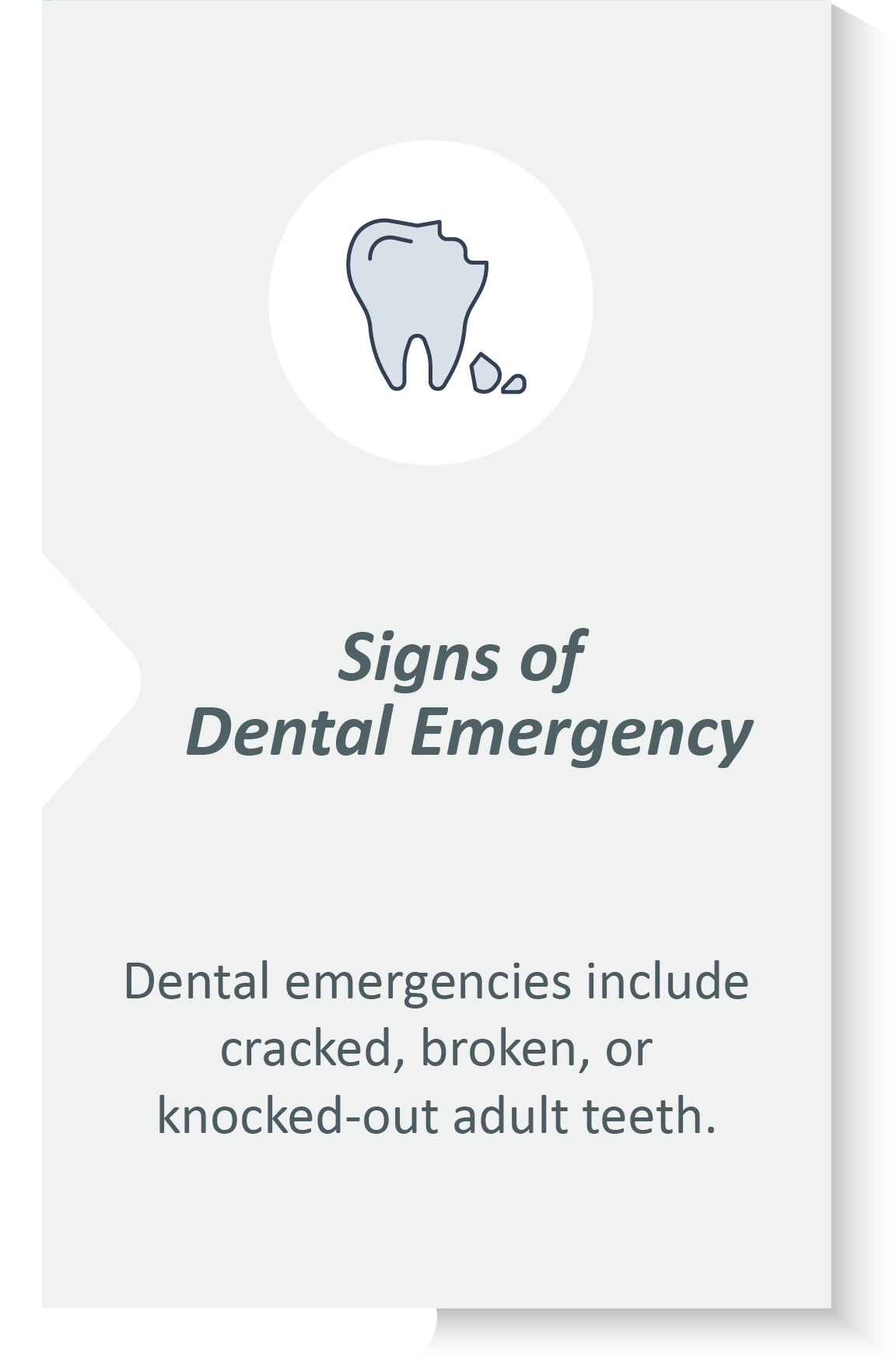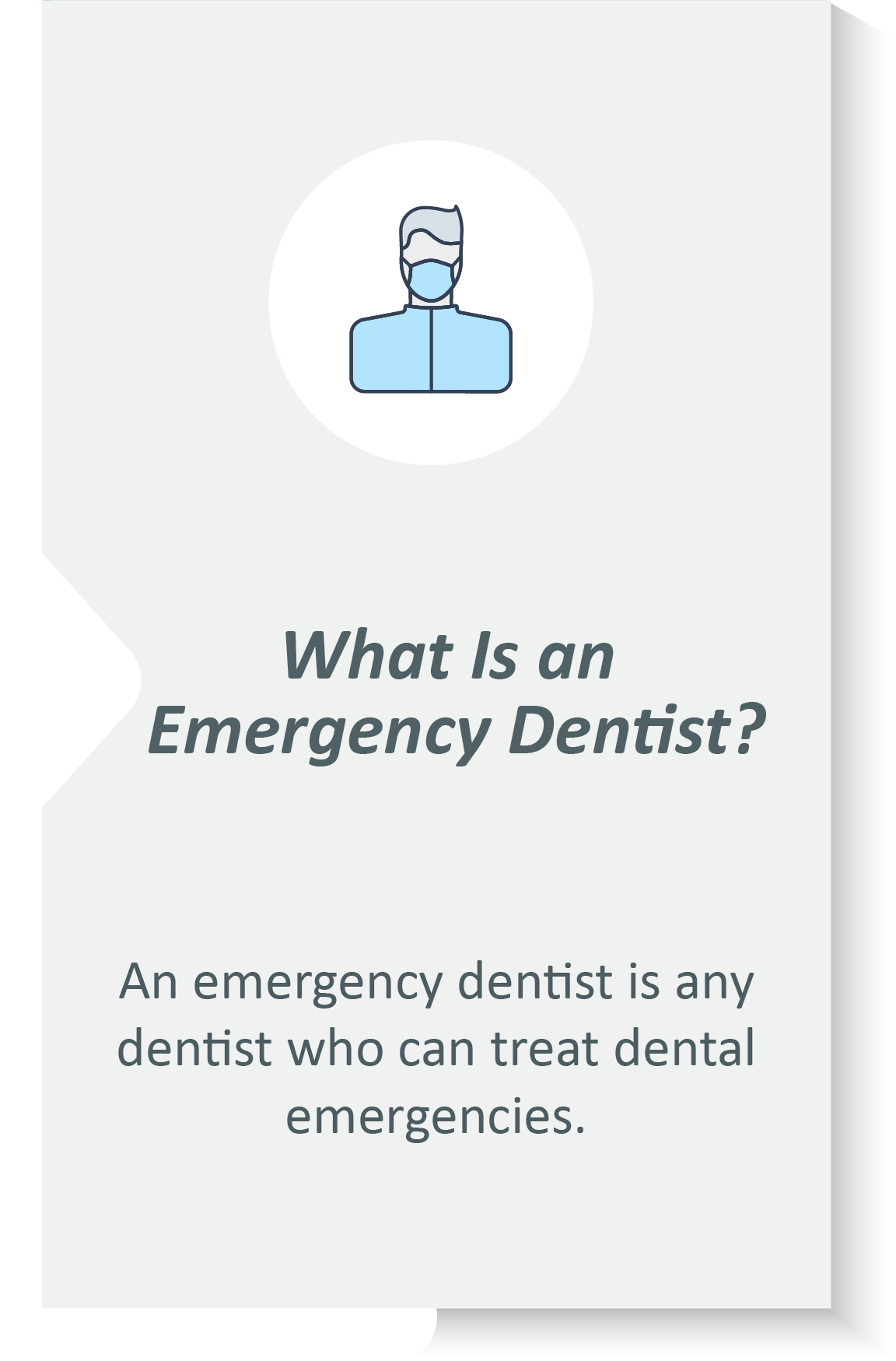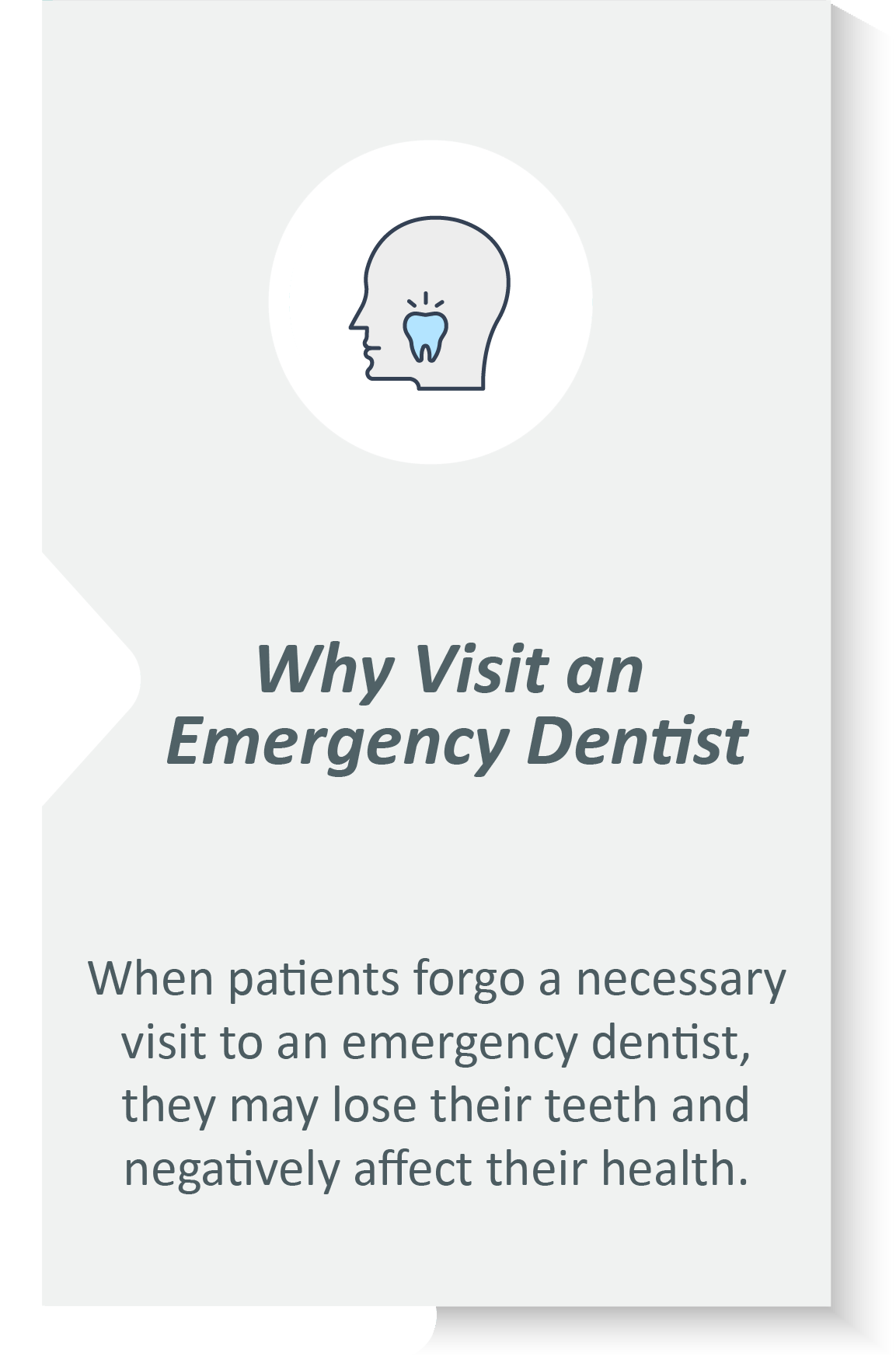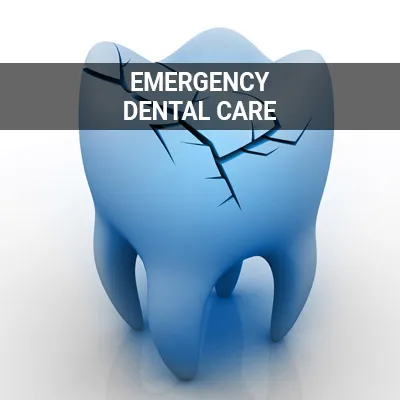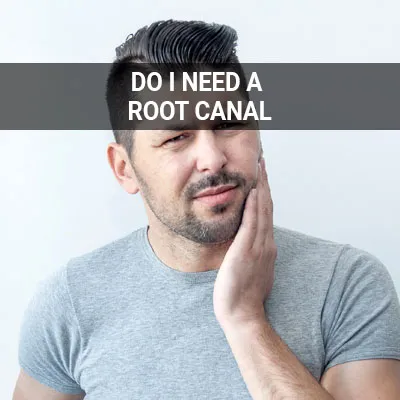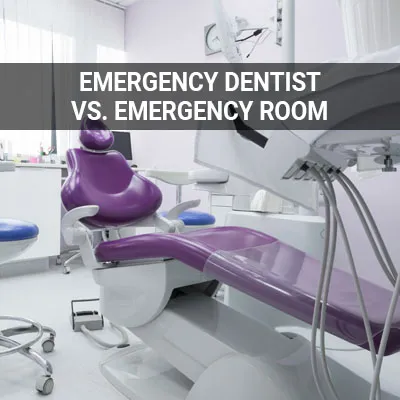Emergency Dentist Charlotte, NC
While patients can avoid many oral problems with preventative care and regular visits to the dentist, emergency dental treatment is occasionally necessary. Dentists may administer this type of care during or outside of regular office hours to help patients with various oral problems, such as infections or missing teeth. Emergency dental treatment is care administered to relieve mouth pain without prior scheduling.
Emergency dental treatment is available at Randolph Dental Care in Charlotte and the surrounding area. We use this type of treatment to care for many common mouth problems to improve patients' oral health. Proper care and treatment are essential for helping patients recuperate from a dental emergency.
If you are experiencing severe mouth pain and need immediate medical treatment, call us at (704) 366-3622 to make an appointment and have your oral health restored.
How Emergency Dentistry Works
Most dental practices offer routine checkups and cleanings with appointments. For most minor problems, patients can call ahead to schedule an appointment within a few days to resolve the issue. Emergency dentistry treats patients dealing with significant dental trauma who need immediate care.
“Emergency dentistry treats patients dealing with significant dental trauma who need immediate care.”
Treating a Toothache or Abscess
As WebMD explains, the type of treatment for a dental emergency depends on the patient's specific injury. While waiting for an appointment with their dentist, the injured individual may need basic first aid. The patient may need to wait for a call-back from the emergency dental practice outside regular office hours.
For a severe toothache, rinse the mouth thoroughly with warm water and remove any food particles gently with dental floss. Cold compresses can help with swelling and pain in the affected area. Do not place a painkiller such as aspirin against the painful tooth, as doing so can injure the gum tissue. However, taking acetaminophen orally can often control the pain associated with a toothache. Avoid aspirin, which can exacerbate bleeding.
If an abscess develops on the gum tissue, rinse your mouth with a saltwater solution a few times a day. Depending on the reason for the pain, the dentist may remove or repair the decayed tooth before prescribing an antibiotic to relieve the infection.
“.While waiting for an appointment with their dentist, the injured individual should perform basic first aid.”
Chipped, Broken, and Missing Teeth
For a broken or chipped tooth, save the pieces of the tooth if possible. Rinse the mouth completely with warm water and use clean gauze to slow bleeding. A cold compress can help with swelling or pain. The dentist will attempt to restore the broken tooth or recommend a crown or implant depending on the extent of the damage. This type of injury may require a root canal to repair damage to the tooth's pulp, leading to infection.
The Oral Health Foundation recommends that if a tooth is completely knocked out in a fall, fight, or accident, hold it by the crown and rinse the root with warm water. Replace the tooth in the socket above the gum if possible. If it will not stay in place, save it in a small container of milk and see the dentist as soon as possible. Avoid handling the tooth when it is not necessary to do so. Patients have better chances of saving the lost tooth if they receive treatment within 60 minutes of the injury.
“The dentist will attempt to restore the broken tooth or recommend a crown or implant depending on the extent of the damage.”
Check out what others are saying about our dental services on Yelp: Emergency Dentist in Charlotte, NC
Treatments for Dental Emergencies
Since there are many types of dental emergencies, treatment options vary. The dentist will first examine the problem to determine the best course of treatment. After diagnosing the issue, the dentist can either treat the infection, remove the infected tooth, or replace missing tooth fragments. The dentist may also prescribe pain medication or antibiotics to aid in recovery.
“Since there are many types of dental emergencies, treatment options vary.”
Questions Answered on This Page
Q. What makes emergency dentistry different?
Q. What are the different types of dental emergency treatments?
Q. What should I do while waiting to get to the emergency dentist?
Q. What should one do for a toothache when waiting to see a dentist?
Q. What should you do if you break a tooth?
People Also Ask
Q. What is the treatment for a cracked tooth?
Q. Do I need a tooth extraction?
Q. Should I have persistent pain after a professional cleaning?
Q. What are some of the reasons one might need a tooth extraction?
What To Do While Waiting For Emergency Dental Treatment
If a patient is suffering from any kind of dental trauma, the first thing to do is contact the dentist for instructions. Treatment options vary depending upon the type of problem. For a lost filling or crown, patients can use a small piece of sugarless gum to cover the opening temporarily. Mouth pain can sometimes be alleviated with over-the-counter medications, while extensive dental trauma may require patients to pack their mouths with gauze.
“If a patient is suffering from any kind of dental trauma, the first thing to do is contact the dentist for instructions.”
Frequently Asked Questions
Q. How can I avoid a dental emergency?
A. Protect your teeth and gums when playing sports by using a mouthguard made to fit your mouth precisely. Do not chew hard items such as candy and ice that can damage teeth. Do not use your teeth as tools (to open a package, for example), which can also cause breakage and injury. Keep a first aid kit with gauze and acetaminophen in case of a dental injury.
Q. Is tooth sensitivity a dental emergency?
A. If you experience pain or sensitivity when the teeth are exposed to heat, cold, or pressure, a cavity could be the cause. This symptom is also common among those who have recently had a dental procedure. However, it does not constitute an emergency unless the pain becomes severe.
Q. What type of pain signals a dental emergency?
A. Sharp pain that occurs when you bite down often indicates a broken or damaged tooth. If pain occurs to the gum area within 30 seconds or so of eating hot or cold food, this could indicate damage or infection to the pulp of the tooth. Both of these situations require immediate dental care.
Q. Should I seek emergency dental care for a small crack or chip?
A. Minor damage to the teeth is often painless and is not necessarily an emergency. Chips and cracks that affect only the tooth's enamel can often be filled, polished, and smoothed. However, you should see the dentist right away to prevent further damage. A crack or break in the tooth becomes more urgent when the root is exposed, which can cause severe pain.
Q. What if I have a loose adult tooth?
A. A loose permanent tooth is a dental emergency. If left untreated, the tooth could fall out entirely. Gently push the tooth back into alignment and see a dentist right away for reattachment.
Dental Terminology
Learn More About How Emergency Dental Care Can Help You
A dental emergency can be frightening, and it is important to seek medical attention as quickly as possible. Our practitioners can treat your problem to relieve mouth pain quickly. Call Randolph Dental Care at 704-366-3622 today to schedule an appointment in Charlotte.
Helpful Related Links
- American Dental Association (ADA). Glossary of Dental Clinical Terms. 2024
About our business and website security
- Randolph Dental Care was established in 2016.
- We accept the following payment methods: American Express, Cash, Check, Discover, MasterCard, and Visa
- We serve patients from the following counties: Mecklenburg County
- We serve patients from the following cities: Charlotte, Matthews, Huntersville, Fort Mill, and Pineville Mint Hill
- Norton Safe Web. View Details
- Trend Micro Site Safety Center. View Details
Back to top of Emergency Dentist

